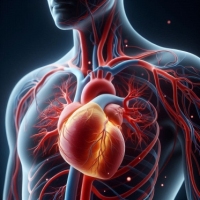
Malaria: Prevention and Management
- Oct 15, 2024
- 0

Embarking on a health journey is one of the most empowering decisions you can make for your well-being. Whether you're aiming to lose weight, build muscle, manage a chronic condition, or simply feel better in your daily life, the foundation of this journey lies in one key factor: nutrition. Proper nutrition not only fuels your body but also supports mental clarity, boosts energy levels, and enhances overall quality of life.
The food you consume directly impacts your body’s ability to function. Each nutrient—carbohydrates, proteins, fats, vitamins, and minerals—plays a specific role in maintaining your body's essential systems. A balanced diet provides the necessary building blocks for energy, tissue repair, immune function, and brain activity.
Good nutrition promotes optimal bodily functions, ensuring your cells are healthy and your systems work efficiently. Without proper nutrition, the body struggles to perform its everyday tasks, which can lead to fatigue, compromised immunity, poor concentration, and even long-term health issues like heart disease, diabetes, and obesity.
While many people focus on nutrition for physical health, it’s important to recognize its impact on mental well-being too. Consuming a diet rich in whole foods—such as fruits, vegetables, and healthy fats—has been shown to improve mood and reduce the risk of mental health issues like depression and anxiety.
For instance, omega-3 fatty acids, found in foods like fish and flaxseeds, are known to enhance cognitive function and emotional stability. Likewise, vitamin D, which you can get from sunlight and certain foods, plays a role in regulating mood and preventing depression.
Whatever your health goals may be—whether it’s improving digestion, gaining muscle, or achieving a balanced weight—nutrition plays an integral part. You can’t out-exercise a poor diet, and no supplement can replace the benefits of a well-balanced meal.
Maintaining a proper diet over time not only contributes to immediate physical and mental health but also provides long-term benefits. Research shows that good nutrition is linked to longer life expectancy, reduced risk of chronic diseases, and improved quality of life. Proper nutrition supports healthy aging, enhances mobility, and preserves mental acuity, helping you lead a vibrant, active life as you age.
“Nutrition is the foundation of health. When you fuel your body with the right nutrients, you’re setting yourself up for a longer, healthier, and more vibrant life.”
Leave Comments